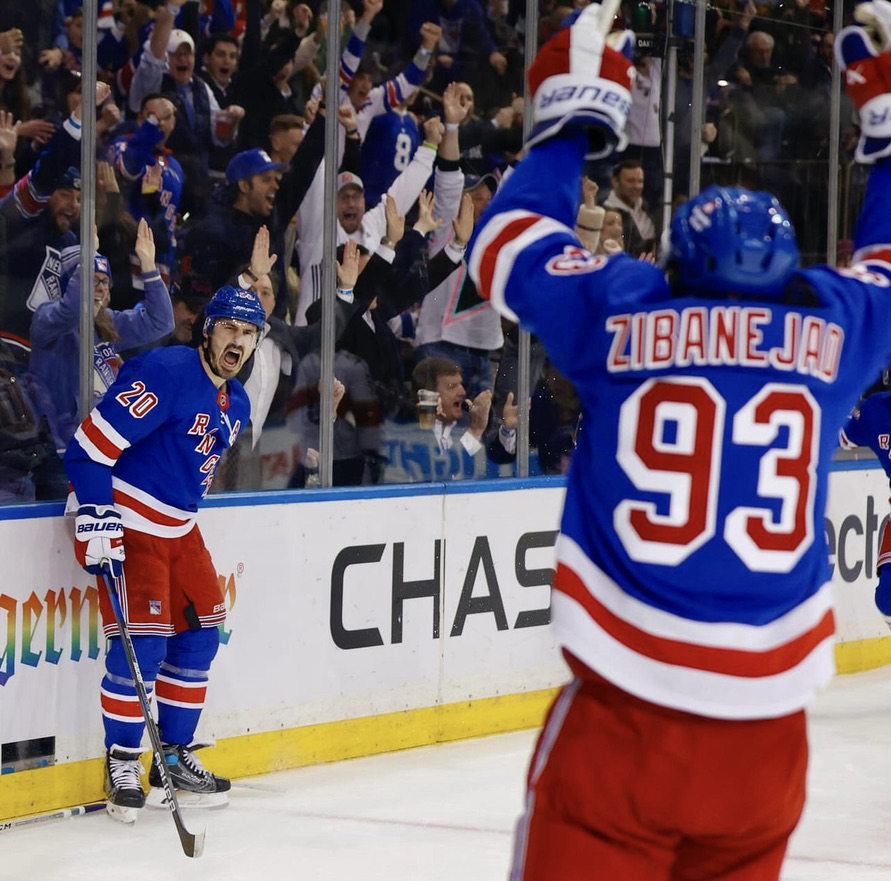Ahead of last Friday’s deadline, the New York Rangers weren’t expected to make too much of a splash. Last season, the additions of star players like Vladimir Tarasenko and Patrick Kane were expected to give the Rangers a big boost for the playoffs, but a first-round exit shocked fans and players alike. General manager Chris Drury went for a different strategy this year by adding depth players like Jack Roslovic and Alexander Wennberg, both of which could play top-six minutes, but serve as important pieces in the third and fourth lines if necessary.
27-year-old Jack Roslovic joins the team with seven years of experience under his belt and will likely serve as the top-line right wing alongside Mika Zibanejad and Chris Kreider. Roslovic began his career with the Winnipeg Jets before getting traded to the Columbus Blue Jackets, where he’s been playing for three and a half seasons. Serving on the first line with the Rangers’ stars puts him in a position to score more points, and as a pass-first player, he’ll complement the goal-scoring abilities of Kreider and Zibanjead. In Saturday’s game against the St. Louis Blues, he saw playing time on the second power-play unit alongside Wennberg, Alexis Lafreniere and Kappo Kakko. Roslovic went pointless in his Rangers debut, but with another month of hockey still to be played, he will continue to develop his new role on the new team.
Alexander Wennberg is another former Blue Jacket who was traded to the Rangers from Seattle, where he played for the inaugural Seattle Kraken team since 2021. The trade for Wennberg was a pure depth move by Drury, as the third-line center rental market was sparse by the end of the week. The 10-year veteran is a great penalty killer who is not afraid to get in front of a shot, as he has 65 blocks in 61 games this season. The Blueshirts’ special teams didn’t seem like necessary areas of improvement, but getting as much depth as possible is essential for a long playoff run, as would be expected from the team this season.
Interestingly, Drury chose not to trade young forward Kakko, as the 2019 second-overall pick has had four abysmal seasons and hasn’t played up to the expectations set for him. He has only 12 points in 42 games this season, and it was widely expected that he might be used in a trade package at the deadline. His contract ends at the conclusion of the season, but the Rangers maintain his signing rights and could still use him in a trade if they are unhappy with his performance at the end of the season.
With a dominant 4-0 win against the St. Louis Blues on Saturday, the Rangers carry momentum into their upcoming games against division and conference rivals like the Carolina Hurricanes and Boston Bruins, two teams who are similar in caliber and playoff hopes this season. Drury hopes these deadline moves will pay off, but he has demonstrated his trust in the team by staying conservative. The Blueshirts were the first team to 40 wins and looked primed for another run at the cup. As the saying goes, there’s no point in fixing something if it’s not broken.





































































































































































































